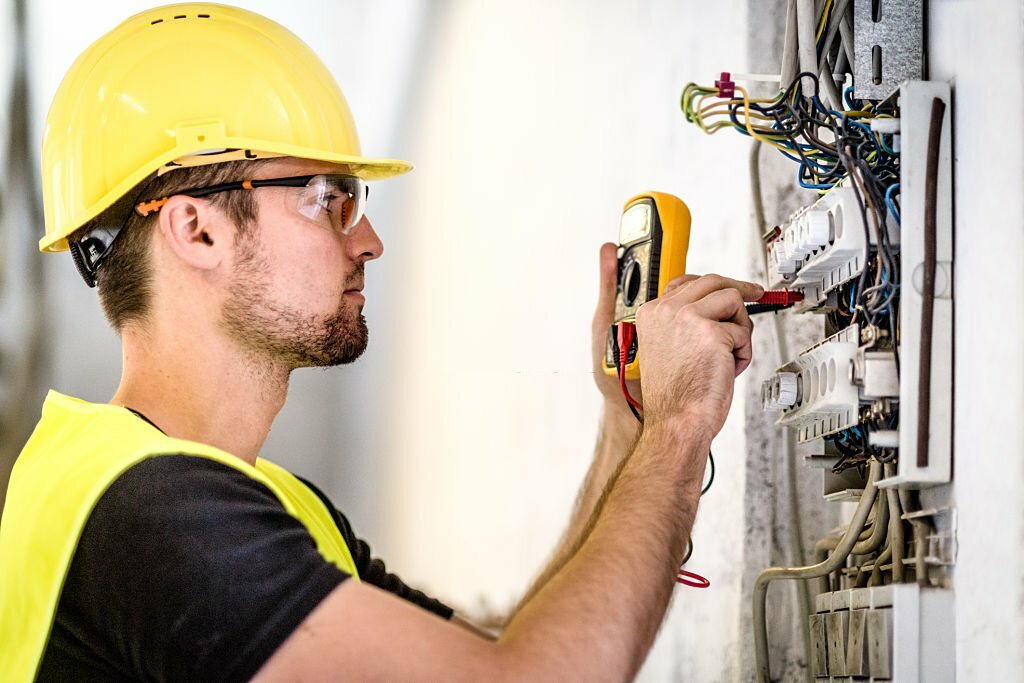
Have you ever considered how technology is reshaping the way we manage and utilize electricity in our homes? Or how modern electrician practices could offer new methods to handle these changes? Today, there seems to be no end to the advancements being made in the realm of electrical technologies, and with these advancements come changes to our lifestyle, our homes, our offices and even our cities. And at the heart of these transformations are the electricians, who play a pivotal role in incorporating these innovations into our day-to-day lives. In this article, we will delve into some of these advancements, discussing their implications and impact on modern electrician practices.
Where once the work of electricians involved routine setups of wiring and systems, today their job description has evolved dramatically. These professionals now grapple with sophisticated technologies such as renewable energy sources, smart home systems, and electric vehicle charging. But what does this mean for how our spaces are designed and how we interact with them?
As a home improvement enthusiast, you might be curious about these changes. How are they making our homes more efficient and comfortable? What might be their potential drawbacks? This post will deep-dive into the current trends and innovations influencing modern electrician practices, their pros and cons, and what they could potentially mean for your living spaces.
The Rise of Smart Homes and How it Impacts the Role of Electricians
The concept of the ‘smart home’ is not new, but advances in technology are pushing the envelope on what we once dreamed could be possible. Automated lighting, heating and cooling systems, security devices – our homes are becoming increasingly interconnected. As a result, the role of modern electricians has also escalated, demanding not just knowledge of traditional frameworks but also the ability to work with complex, integrated systems.
Electricians, once mostly tasked with the installation, maintenance, and repair of traditional electrical systems, are now also expected to have a solid grounding in home automation. The implications are numerous; a savvy homeowner might require their services to integrate their command system with their coffee machine or automate their home lighting in concert with their daily schedule.
These trends present new challenges and opportunities for electricians. As the need for smart home integration grows, so too does the demand for professionals who can seamlessly integrate these elements while ensuring safety and reliability.
The Role of Renewable Energy in Shaping Modern Electrician Practices
Sustainability and renewable energies are no longer just buzzwords; they’ve become integral to modern electrician practices. The widespread adoption of solar panels has considerably changed the landscape for electricians. From the installation and maintenance of these panels to connecting them to our homes and the power grid, the electrician’s role is crucial.
Electricians today need to understand not just the mechanics but also the larger environmental and economic implications of these systems. Furthermore, they are often called upon to advise homeowners on the proper installation and use of these systems to achieve energy efficiency and cost savings.
However, this also comes with new challenges. Renewable energy generation can be unpredictable, leading to the need for sophisticated systems to manage and store this energy. Indeed, the incorporation of renewable energy into our homes is revolutionizing the field of electrical work.
Electric Vehicle Charging Systems and their Impact on Home Electrics
The rise of electric vehicles has brought about the need for home charging stations, dramatically impacting the scope and nature of an electrician’s job. Electricians now need to be proficient in installing and maintaining these charging stations, requiring them to stay updated on the latest technologies and regulations around electric vehicles.
Furthermore, these charging stations can draw significant power, demanding upgrades to home electrical systems and careful load balancing. This moves the role of the electrician beyond simple installation to also include critical problem-solving and planning.
Despite the challenges, this presents another fascinating development that modern electricians have to engage with, once again underscoring the changing nature of the profession.
The Pros and Cons of These Innovations
With these developments come various advantages and drawbacks. Firstly, the move towards a more automated, energy-efficient ecosystem undoubtedly improves overall energy usage and cost. It also opens up new service areas and specializations for electricians, creating more opportunities for growth.
On the downside, electricians are now expected to be well-versed in emerging technologies that can be complex. This puts considerable pressure on them to continually learn, adapt, and innovate. Extensive training and continuous professional development are now must-haves to stay relevant in the field.
The Impact on Homeowners
For homeowners, these innovations dramatically alter how they interact with their homes. The comfort, convenience, and efficiency that come with an intelligent, well-designed electrical setup can significantly enhance their quality of life. On the flip side, the increasing complexity of these systems can make them more daunting and challenging to maintain and troubleshoot.
Conclusion: Embracing the Future of Electrician Practices
The fast-paced progression of technology has propelled electrician practices into a new era. Today’s modern electrician is no longer simply a technician but is a critical player in enhancing how we live and operate in our spaces. From revolutionising our interaction with our homes through smart technologies to harnessing the power of renewable energy sources, the future holds exciting opportunities for these professionals.
However, homeowners and electricians must navigate this complex landscape together. As homeowners, we need to stay informed and updated about these trends. As electricians, they need to keep learning and evolving to handle these innovations. Despite the challenges, it’s clear that the future of electrician practices is brimming with potential.
Let’s embrace these changes, celebrate the benefits they bring, and meet the challenges head-on. After all, the ultimate goal here is a more comfortable, energy-efficient home that meets our requirements, in sync with a rapidly evolving world. We are on a thrilling journey to the future; let’s enjoy the ride.
